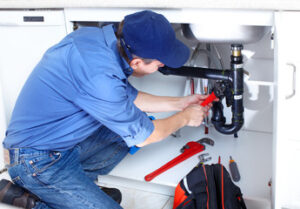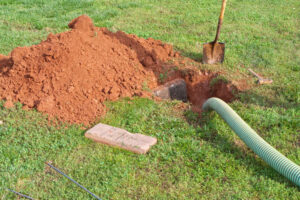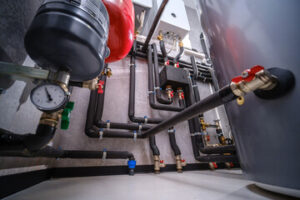Plumbers Shreveport is used in hospitals, retail stores, and office buildings. The systems are in constant use and must be able to handle a lot of water usage.
Unlike residential plumbing, where clearing a clogged drain is fairly straightforward, commercial plumbing involves many complexities. Some of the main differences between commercial and residential plumbing are:

Commercial plumbing differs from residential plumbing in many ways, but the differences aren’t as great as some might think. The main difference is the size and scope of a building’s plumbing systems. Commercial buildings typically have bigger and more complex plumbing systems than residential properties, with greater capacities and a wider range of fixtures and appliances.
Larger plumbing systems can support a larger number of people using the toilets, sinks, and showers at once. They also require more frequent maintenance and repair. Having more people using the plumbing system can also cause it to wear out faster than residential plumbing, so it’s important for businesses to have a plan in place for emergency repairs or other maintenance issues that might arise.
Besides the number of users, another big difference between residential and commercial plumbing is the amount of water that’s used. Commercial buildings often have more appliances and fixtures that use up a lot of water, including soda machines, water fountains, and urinals. They may also have heating systems for the hot water, which requires additional piping.
Plumbers who specialize in commercial plumbing know how to deal with these greater capacities and broader range of uses. They also have the training and tools to fix a wider variety of problems, including drain clogs, pipe repair, and more. They can work on industrial-grade equipment, too, such as huge boilers and lift stations.
There are other differences between commercial and residential plumbing, but these two broad areas cover the majority of what’s needed in most situations. For example, while most residential plumbing focuses on toilets and drains, commercial plumbers also deal with kitchen sinks, garbage disposals, and washers and dryers. Some commercial plumbing involves more specialized work, such as installing or repairing medical gas lines or fire sprinklers. These are jobs that would be difficult or impossible for a general residential plumber to do.
Code compliance in commercial plumbing is essential to the safety and well-being of building occupants. Observing the regulations sets clear standards for materials, installation, and maintenance. It helps to prevent a variety of problems, such as backflow and contaminated water.
Among the most important standards that apply to commercial plumbing is proper ventilation. Ventilation prevents the buildup of harmful gases and keeps odors from spreading throughout the building. It also ensures that the drain line is properly vented, which prevents sewage and other contaminants from being returned to potable water supplies.
Proper slope is another standard that applies to many types of drainage lines. For example, all plumbing fixtures connected to a waste sewer system must have a minimum slope of 1/4 inch per foot. This allows wastewater to flow gradually into the waste sewer system, which helps prevent clogs. In addition, a trap is required in all piping that conveys waste water or sewage. These are typically installed at every fixture except kitchen sinks, laundry tubs, or lavatories that have a rated maximum flow rate of less than 15 gallons per minute (56 L/min).
Water and energy conservation is another requirement that commercial plumbing must meet. This can be achieved by using efficient fixtures that use less water and energy. These include toilets, faucets, and showerheads.
Plumbing codes often specify requirements for the material and construction of pipe supports and anchors. For example, they may require a steel or other non-corrosive support for a cast-iron water pipe at every change in direction. In addition, the codes require that a restraint be used for pipes with a diameter greater than two pipe sizes, such as with braces or blocks.
Code compliance in commercial plumbing is a must for businesses that want to maintain their reputations and build trust with customers and other stakeholders. It also helps them avoid costly repairs and utility bills in the long run. In addition, following the rules helps save on maintenance costs by ensuring that systems are well-maintained and operating at peak performance. This translates into lower operational costs and higher profitability.
A commercial plumbing system needs to be in top condition at all times. That’s because a large building like a hospital, school, or office cannot afford the loss of water or disruption of services that would occur if the plumbing were to fail. The constant use of a building’s plumbing means that it is under a lot more stress than the systems in residential homes. The best way to ensure that the plumbing stays in good condition is through preventative maintenance.
This involves the regular inspection and repair of the pipes, fixtures, and appliances to keep everything functioning at an optimal level. It also helps reduce the risk of problems like leaks, low water pressure, or corrosion. By working with a commercial plumber to perform routine maintenance, a business can save money by avoiding costly repairs in the future.
Moreover, it can help avoid issues that would disrupt normal business operations such as slow drains and active leaks. Oftentimes, these are easy to spot and fix, but if they are left unchecked, they can cause major headaches. Lastly, it is always good to find a plumber that offers a warranty or guarantee on their work. This is especially important when it comes to maintenance, as you may not know what sort of issues might arise in the future.
When it comes to long-term requirements, it’s important to assess the plumbing and look for any upgrades that might be required in the future. For example, some regions have implemented water conservation measures that require the use of energy-efficient fixtures and backflow prevention devices. There are also health and safety regulations that may impact the plumbing, such as ventilation requirements, fire ratings for materials, and more.
Budgeting for a commercial plumbing upgrade can be complex, but it’s essential to take a systematic approach and seek the guidance of professionals. This process will help you identify the needs of your plumbing system, prioritize them, and make a realistic budget based on industry insights and professional advice. With the right support, you can minimise disruptions, improve water efficiency, and extend the lifespan of your plumbing system – boosting your facility’s value in the process.
Commercial plumbing may have more maintenance needs than residential systems. For instance, it is important for a commercial building to maintain its water pressure and ensure all outlets have a steady flow of water. This is because businesses depend on consistent water service to operate efficiently. Additionally, commercial buildings often have a lot of people, so they need to make sure everyone can access clean water at all times.
Larger plumbing systems are also more likely to have leaks and other problems that need to be fixed. These issues can have a big impact on a business and may result in expensive water damage. To avoid these problems, it is best to hire a professional plumber and keep up with routine maintenance.
Some examples of routine maintenance that commercial plumbers perform include:
Leak detection: Commercial plumbing services can check for signs of water leaks, such as puddles and moisture spots. They can also examine water meter and gauge readings to identify any abnormalities.
Backflow prevention: Commercial plumbers can install and maintain backflow preventers to help protect the building’s water supply from contamination. Pipe maintenance: Commercial plumbers can clean drain lines and remove clogs to improve the flow of water and reduce the risk of overflows.
In addition to these general services, commercial plumbing companies can perform specialized tasks like sewer line cleaning and video inspections of pipes. They can also help with remodeling projects by installing new fixtures and appliances. They can even handle emergency calls for water heater repairs and clogged toilets.
Commercial plumbing is different than residential plumbing because it involves larger, more complex buildings. These buildings have more sinks, toilets, and outlets than homes, and they typically have a higher usage of water. This means that the plumbing system is more prone to wear and tear, so it requires more regular maintenance.
Keeping up with the maintenance needs of commercial plumbing can help avoid costly repair bills and keep the building’s occupants happy and safe. Using a maintenance checklist can make it easier for plumbing companies to track the details of each job and ensure that all required services are completed. Commercial service software like ServiceTitan can help plumbing companies streamline their operations and increase revenue by providing a central location to document maintenance agreement details, schedule jobs, and manage recurring services.








